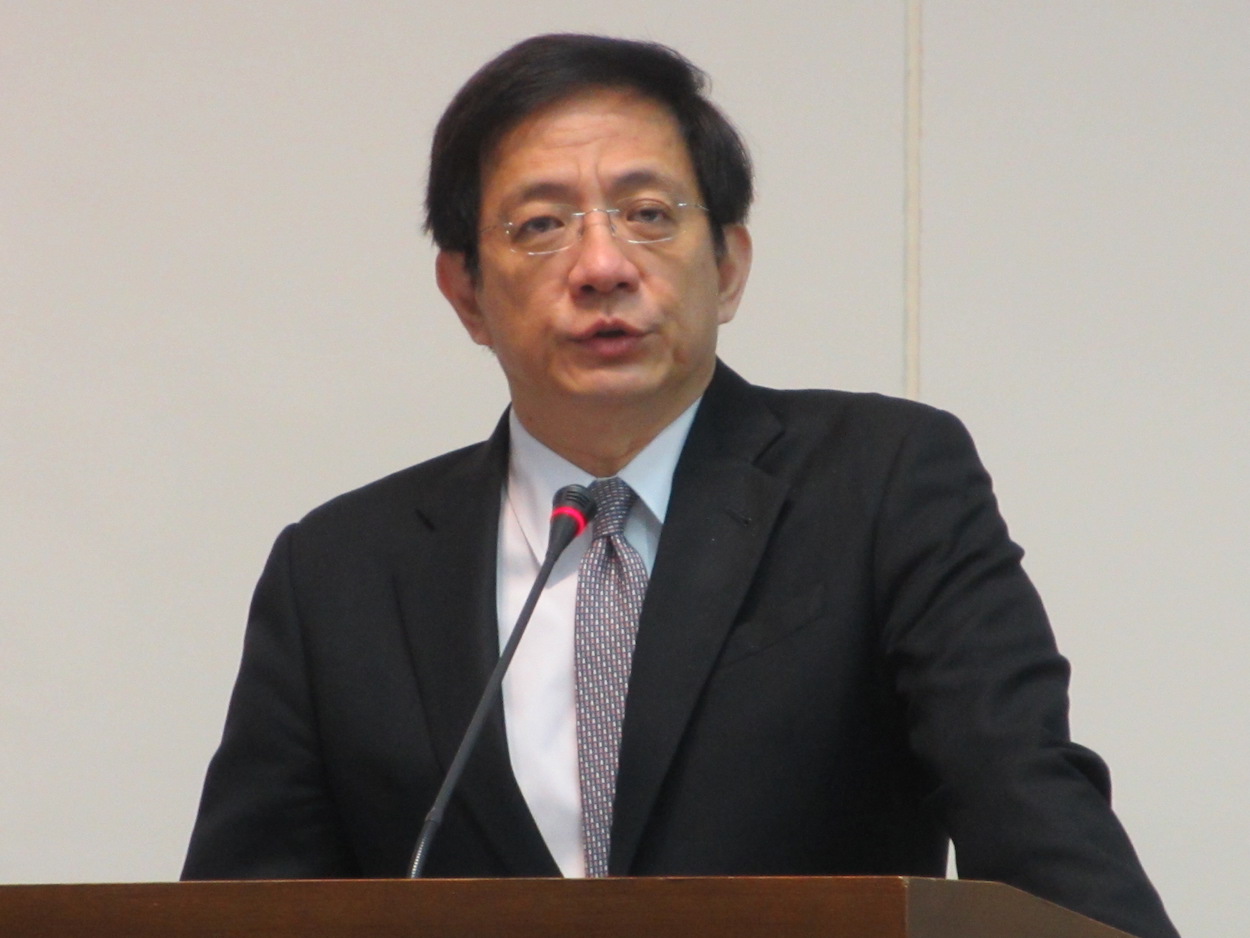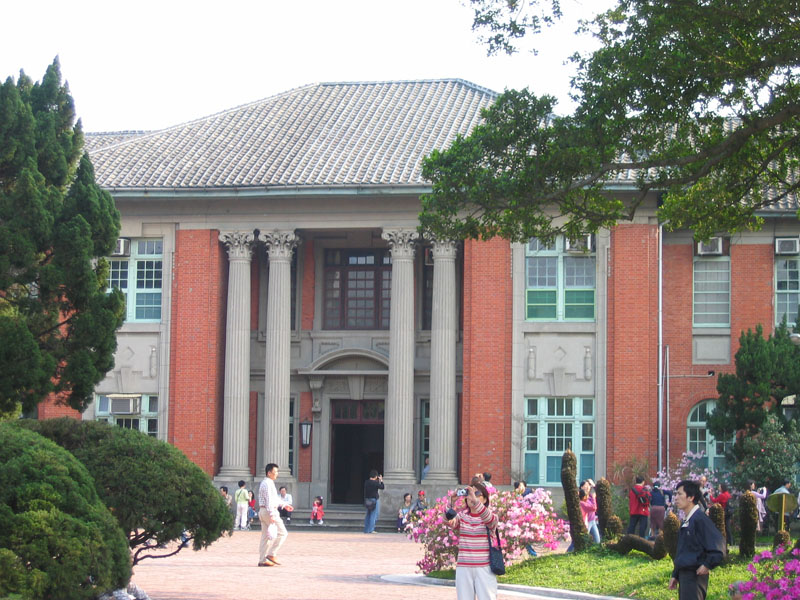by Brian Hioe
語言:
English
Photo Credit: WikiCommons/CC
THE CONTROVERSY regarding the appointment of National Taiwan University (NTU) president Kuan Chung-ming has finally ended, with the Ministry of Education agreeing to appoint Kuan as president of what is generally viewed as Taiwan’s most prestigious educational institution. The scandal dragged on for approximately one year following Kuan’s election as president of NTU in January 2018, finally terminating this week with Kuan’s appointment.
The decision was reportedly made by Minister of Education Yeh Jiunn-rong, or at least this was is what the public narrative of the Tsai administration was regarding questions of why it finally relented on the issue of Kuan’s appointment. Yeh resigned to take responsibility for the decision, seeming to fall on his sword in order to carry out a task which would have reflected badly on whichever high-ranking member of the Tsai administration carried it out.
 Former minister of education and minister of the interior Yeh Jiunn-rong. Photo credit: Lee Chi-fen/WikiCommons/CC
Former minister of education and minister of the interior Yeh Jiunn-rong. Photo credit: Lee Chi-fen/WikiCommons/CC
Earlier, Yeh seemed having taken up the position of Minister of Education precisely in order to resolve the Kuan debacle, resigning from his position as Ministry of the Interior to take up the post. Four ministers of education have resigned from their position as Minister of Education because of an inability to resolve the Kuan scandal. It remains to be seen whether this means the end of Yeh’s political career, period, but if so, this was the result of the inept handling of the scandal by the Tsai administration.
The Kuan appointment became controversial after he was elected president of NTU by NTU’s presidential selection committee, but several scandals regarding Kuan’s academic career and the election process broke out shortly afterward. The first of these scandals was that Kuan was accused of plagiarizing a student’s paper, ironically enough, the same scandal which led to the resignation of his immediate predecessor as NTU president, Yang Pan-chyr, which proved a major scandal about the academic integrity of Taiwan’s leading educational institutions. The paper was related to the Ma administration’s CSSTA trade agreement, which Kuan had had a hand in formulating as a former finance minister during the Ma administration
The second scandal was that Kuan was listed on the several websites of Chinese educational institutions as a faculty member. These included Xiamen University, Xian Jiaotong University, and Huazhong University of Science and Technology, suggesting that Kuan had taken up teaching posts in China less than a year after stepping down as a government minister. Government ministers who handle classified information, such as Kuan, are not allowed to leave the country without permission for three years after the end of their terms and Kuan is accused of possibly teaching in China since 2005.
The third scandal was that one of the members of NTU’s presidential selection committee, Richard Tsai, served at the same time as Kuan on the governing board of Taiwan Mobile. This suggests that Kuan did not come clear about a conflict of interest which might have led Tsai to be favorable to selecting Kuan, a prior acquaintance, as president of NTU.
 Kuan Chung-ming. Photo credit: VOA/CC
Kuan Chung-ming. Photo credit: VOA/CC
Significantly, the Tsai administration focused on the last scandal in its original decision to block Kuan’s appointment. The Tsai administration likely wished to avoid the public perception that it was politically persecuting Kuan, as a high-ranking member of the preceding Ma administration.
The decision of the Tsai administration to block Kuan’s appointment was met with criticisms from high-profile political allies of Kuan such former president Ma Ying-Jeou, KMT legislator Apollo Chen, and others. Protests also broke out among the NTU campus; though the fact that many participants of these protests were not NTU students but members of the pan-Blue camp was widely mocked, as well as the fact that NTU departments in support of Kuan sometimes had a strong history of pan-Blue leanings, others were not in favor of the government interfering in the internal democracy of an academic institution. NTU itself officially condemned the actions of the Tsai administration, though a number of NTU faculty dissented from the NTU administration’s official statements and also called for Kuan’s removal.
And so, it seems that in the face of protests and internal resistance from NTU, the Tsai administration has finally given up on the matter. The solution originally suggested by the Tsai administration was to hold another set of elections for NTU president in which Kuan would be allowed to participate, justified with the claim that the process by which the first set of elections were flawed, as more of the “selection” of a pre-ordained candidate than a genuine election.
However, the fact that Kuan would be allowed to participate might simply mean another Kuan victory, to which the Tsai administration could say nothing. This is probably the rationale behind simply allowing Kuan to take office.
 NTU campus. Photo credit: Kentai/WikiCommons/CC
NTU campus. Photo credit: Kentai/WikiCommons/CC
Perhaps, then, Kuan’s appointment could be seen as a loss for the Tsai administration. In truth, grounds were probably sufficient to remove Kuan, yet the Tsai administration flinched prematurely in the face of opposition from the pan-Blue camp and from society at large. Making a decision and following through with it probably would have minimized blowback, even if some was to be expected. This continues a pattern of behavior seen with the Tsai administration on many issues, including labor law, gay marriage, and nuclear energy, in which the continual flip-flops of the Tsai administration in an attempt to keep all sides happy result in no sides being happy. As such, the Kuan debacle was likely one entirely of the Tsai administration’s own making.

